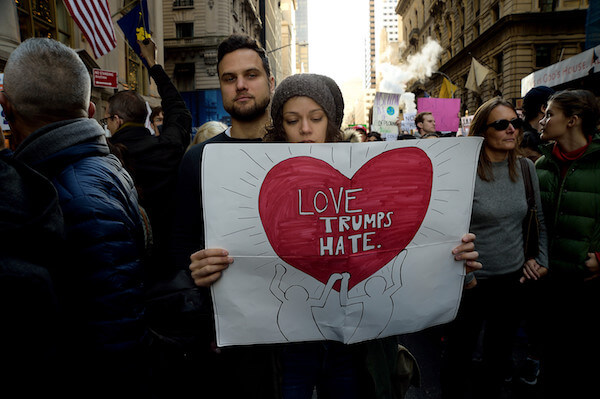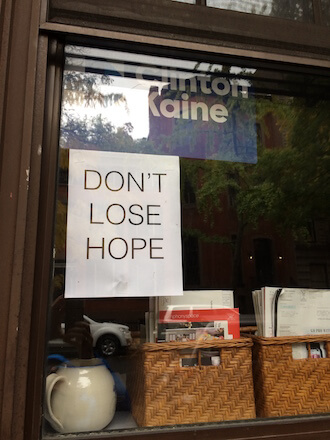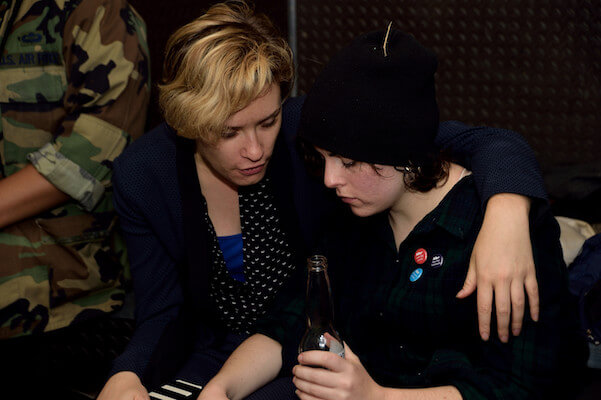BY PAUL SCHINDLER | In a recent New York Times article, which was titled “Hillary Clinton’s Gay Rights Evolution” and explored her connection to and, to a lesser extent, her detractors among LGBT voters, longtime activist David Mixner got the last word.
Arguing that lesbians and straight women were among the most committed activists during the earliest days of the AIDS epidemic, Mixner — who was once close to the Clintons but also had a famous break with them early in Bill’s presidency — asserted, “There’s a very strong bond between the feminist community and the gay rights community.” He then added, “It’s a real symbiotic relationship and it diminishes it to say we’re supporting her in some Judy Garland way.”
Well… yeah.
How this statement found its way into a story about a politician might be explained in part by the fact that it ran in the newspaper’s Fashion & Style section.
But it may also be an appropriate closer for the article because some of the highest profile people quoted seemed to suggest something uncomfortably close to precisely that.
To be sure, the article cites the difficulty Clinton had explaining to NPR’s Terry Gross the way in which she “evolved” on marriage equality and away from some of the Clinton presidency’s black marks — including the Defense of Marriage Act and the Don’t Ask, Don’t Tell policy. And it cites critics of Clinton, such as blogger Andrew Sullivan, on those points.
But much of the article is given over to praise for Clinton — and it often doesn’t reflect well on our community’s political savvy.
“People see her as a survivor and someone who despite her many, many gifts and blessings, survived some personal and political setbacks and persevered in the face of them,” said Richard Socarides, who was a Clinton White House hand.
Sarah Kate Ellis, the president of the Gay and Lesbian Alliance Against Defamation, is quoted saying, “The LGBT community is, in some respects, very forgiving. We’ve seen our own family and friends evolve around us so it’s not out of context to see a politician evolve as well.”
Most cringe-worthy, though, was the statement from the Human Rights Campaign’s lead spokesman, Fred Sainz: “We get her like we get our moms. We’ve seen the travails she’s been through and the fact that she’s not just a survivor but a conqueror.”
If Hillary Clinton is our next president, it won’t be important if she has suffered as we have or if she reminds us of our mom or some other family member. The global human rights vision she laid out at the State Department will. That she now supports marriage equality will. And whether she would push for comprehensive nationwide civil rights protections for every LGBT Americans is a question we must have her answer before November 2016.
This other stuff is trifling BS.
For several weeks after the tragedy in Ferguson, Missouri, Clinton failed to say anything publicly about it. Last Monday, the Reverend Al Sharpton called her out on that silence, something I know about because Doug Robinson, a longtime New York gay activist, alerted me that he was putting his earlier support for Clinton on hold pending her response.
Three days after Sharpton spoke up, Clinton herself did.
There’s no doubt that if Clinton is the Democratic nominee, Sharpton would prefer her to any of the Republicans who might possibly run against her. But you won’t hear him talking about how Bill, with all his Southernisms, was really “the first black president.” Or how when Hillary suffered a head injury late in her tenure as secretary of state, it reminded him of an aunt who bounced back after a fall.
If we expect to be taken seriously as a political constituency, we have to stop addressing politics like it’s all about feelings and wonderful moments of personal identification. We need to focus on all the business that remains undone, despite our recent successes. And we might think about not answering questions from Fashion & Style reporters about the most powerful office in the world.

































